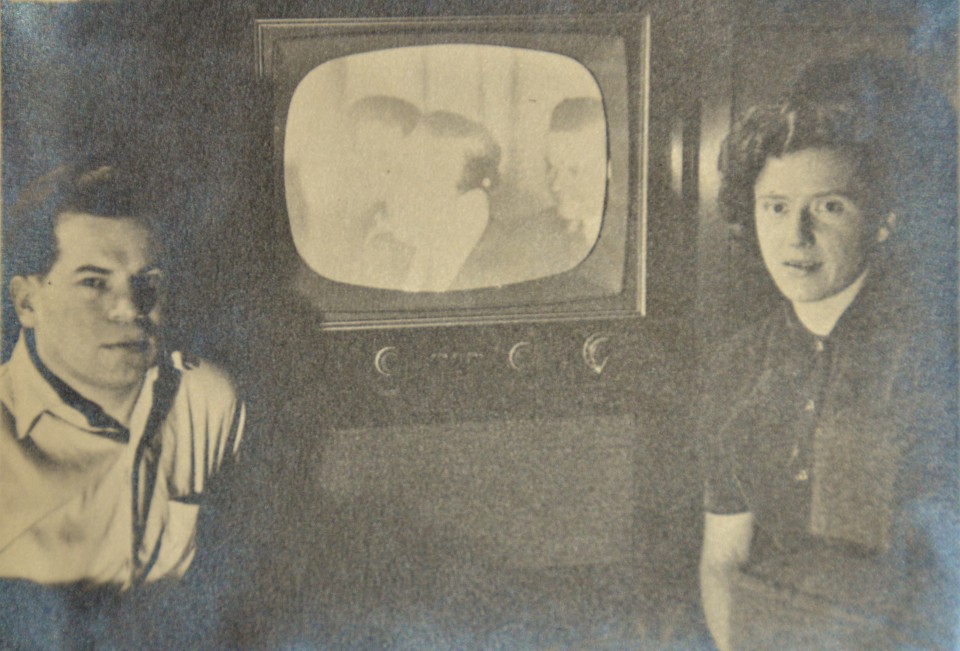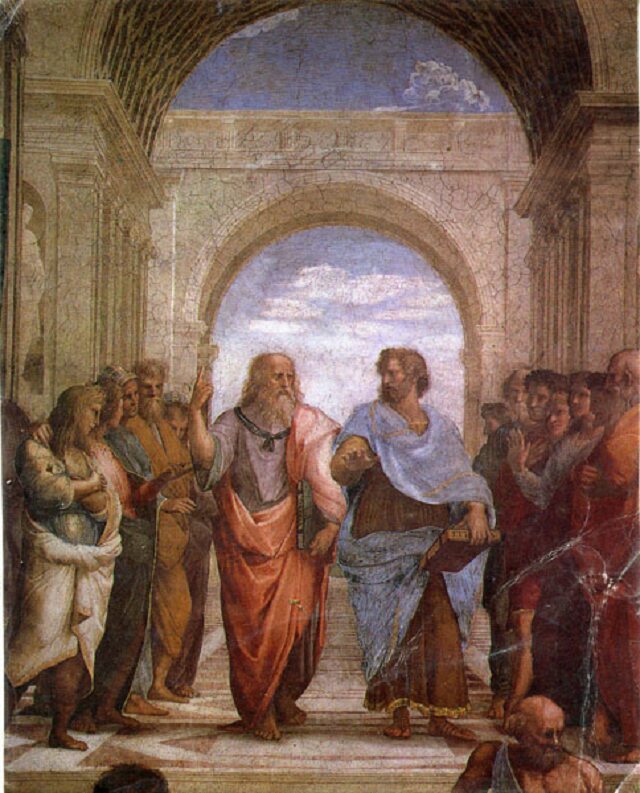Socratic Dialogue
SEE THIS CARD ON YOUTUBE
This is an auspicious time for conscious discourse with spiritual allies. The ally could be a person, an oracle, an entity, or your higher self. Most conversations are small talk, meant to keep lines of social connection open with the least substance and thinking possible. If you have a strong commitment to consciousness, this type of communication will be inadequate and irritating after a certain point. It is crucial to have spiritual allies with whom challenging, thoughtful discourse is possible. Use your higher intuition to steer the subject matter if you want a worthwhile Socratic dialogue. If the dialogue is led only by thinking function, it can quickly descend into Philosophy 101 amateur hour. In general, you can enhance many aspects of your life by applying principles of story structure. Here's one: In every scene, something of high human value should be at stake and change during the scene. For example, if I'm dialoguing with someone about a significant problem they're having in a significant relationship, something of high human value is at stake that could change as the dialogue progresses, and we discover causes and possibly a new way to relate to the issue. On the other hand, if the dialogue is about how a sports team is doing, and neither of us is on the team or in a position of influence related to the team or about to place a high-stakes bet related to its performance, there is nothing of human value that's going to change as a result of the conversation. If I'm talking to someone about their relationship, one of the principals is present, a key actor in the drama. I am less willing to talk to someone about their friend's dream or relationship because none of the principals are present. In the sports team example, no one who is even in contact with the principals is present. On the other hand, if the subject is politics or another factor affecting the state of the world, and IF (this is a big IF) the person I'm talking to is not ideologically captured by a polarized view, I am usually willing to engage because they are probably a voter, and it is the job of every global citizen to be informed about the world, and if capable, to help inform others, and to push back on disinformation and dangerous ideologies. I found my fourteen years as a high school English teacher fulfilling because there were always some open and enthusiastic students, so something of high human value (knowledge, skill, and consciousness) could change during a classroom scene. Since I left teaching in 1995, I've been doing free dream interpretation and oracle readings at festivals and other public events. I'm always highly engaged because something of high human value is at stake. It's not uncommon for someone to bring me a recurrent dream related to their life's deepest themes. Along with writing, performing this role is the most fulfilling thing I do. If you know of a festival or event where I would be welcome to perform this service, please email me at [email protected]. On the other hand, if someone wants to have a conversation with me, for example, about black holes or quantum physics, and they're not a physicist, cosmologist, or mathematician (as I am not), then my interest is limited. Neither of us is competent enough in the subject matter to break new ground or even educate each other. The conversation will be on the level of stoner talk or a college dorm rap session. Something must be at stake in Socratic dialogue, and it must be acceptable to challenge each other. I was fortunate to have parents who were brilliant intellectuals, so challenging Socratic dialogue was an accepted and encouraged form of everyday conversation. Aggressive Socratic Dialogue was the style of polite conversation I was raised with. It was a cultural norm amongst intellectual Ashkenazi Jews, especially in New York. In the Reform Judaism I was exposed to, it was perfectly fine and highly desirable to openly reject abhorrent things in the Hebrew Bible and to challenge God concepts. "God can take it," the Rabbi assured me. Ultimately, even Reform Judaism had too many things I didn't jive with, but no one resisted my walking away from it because independent thinking was highly valued as long as it was ethical. When I left the religion, but not the cultural identity, I created my own religion. As a chaos magician, I don't like inherited rituals, so I created my own one-sentence version of what I considered the inner spirit of the Jewish religion. I wrote the sentence out and put it in Mezuzahs at the entrance to every room in my house instead of Torah verses on parchment. Here's the sentence: "To carry the torch of consciousness forward and engage in rigorous self-examination for the purpose of advancing ethical conduct." The point is, Socratic dialogue cannot exist in a dogmatic culture that can't tolerate divergent perspectives. That could be a fundamentalist religious culture that might brand you a heretic or woke college students who would cancel you for having a different point of view. Tolerance of divergent points of view does not mean, however, polite, passive, quiet acceptance. It means you're allowed to have divergent views but should expect them to be vigorously challenged in a competitive marketplace of ideas. In my family, I was welcome to state any idea or perspective, but if there was any weakness or sloppy thinking, my parents would tear it apart.  Nathan and Bernice Zap apparently watching the Army-McCarthy hearings in 1953. They met at Columbia University, and were highly trained in scientific methodology and other intellectual disciplines. For example, my mom sometimes taught probability and statistics to fellow psychologists and was a peer reviewer of scientific research at the University of Pennsylvania. She said that every scientific study she ever evaluated had flawed methodology. "Except the medical ones," she said, "they had ridiculously flawed methodology." And she was the gentler parent when it came to critiquing my ideas. Someone else might have found my parents to be intellectual bullies (just as some might find me today), but for me, their challenges were a fantastic blessing, sharpening my mind. I'm not saying that approach would be right for every kid, but given that I was just as much a confrontational thinking type as they were, it was perfect for me. What also enhanced my appreciation for Socratic dialogue came when I was fourteen and joined the Bronx High School of Science debate team, the number one team in the country year after year.  Minutes before a debate, a coin toss decided if we were to argue for or against a proposition. There's no better training in being nondogmatic than discovering that it's just as easy to argue for or against anything and to do that competitively on a daily basis. You learn that thinking and oratory are tools that can be used just as readily for good or evil. This is why the highest Socratic dialogue cannot be limited to something as narrow as logic. It should be augmented with spiritual, psychological, social, and emotional intuition and insight. My experience arguing for or against as a competitive debater influenced my for and against philosophy — Dynamic Paradoxicalism. It was an accepted norm that if someone presented an idea, a point of view, or information, a way to show unconditional love was to challenge their thinking and knowledge. The attitude was: the truth can take it. We showed respect and relatedness by challenging each other, which meant something was at stake in the conversation. For more than sixty years of marriage, my parents always had interesting subjects worthy of engaging each other in Socratic dialogue. Growing up in such a household was an incredible blessing but also a continual source of friction and cultural shock, as I still have trouble believing that aggressive Socratic dialogue isn't considered a normal form of polite conversation by most people. Once I left the Bronx at age sixteen to go to college, I discovered that outside the classroom, the way of conversation I was raised in made me a stranger in a strange land. And in the present moment of 2024, when I'm revising this card, challenging someone's thinking can cause them to cancel you. People who initially seemed to have some commitment to consciousness have instantly defriended me for disagreeing with their ideologies. Part of the problem for me is typological. I'm a confrontational thinking type raised by confrontational thinking types. When I talk to others, I think I'm showing them respect by taking them seriously enough to challenge their thinking. It's not only how I was raised but also how I dialogue within myself, aggressively and confrontationally trying to get at the truth. But if I engage a feeling type from a different culture in this way, the content of what I'm saying may not register at all. What they get is: He doesn't like me — he's dissing my ideas. Compounding this problem, I often lack a crucial form of empathy — the feeling-toned intuition of what the other is ready to hear. I'm very good at having insights about others, but I often overestimate what they're ready to hear due to my cultural conditioning and typology, and as Aleister Crowley says, "If I tell a man something he is not ready to hear, it is the same as if I have told him a lie." Learn from my most common mistake by remembering that "Fools rush in where angels fear to tread." Do not try to engage everyone you meet in Socratic dialogue. Remember, Socrates got himself killed doing that. Save Socratic dialogue for those who are ready for it. I'm assuming that anyone engaging this highly idiosyncratic and confrontational oracle can take it and understands my motivation is to empower you, the oracle user, on your path. I want to empower you to rely on your own critical thinking skills and intuition, not to accept the product of mine. I am emphatically not expecting you to agree with everything I say. When I read my own oracle cards, I often find things I no longer agree with, so I revise them, and I hope to continue that work for as long as I'm drawing breath. But no amount of my revision will result in a "perfect" oracle. Like all mortals, I am full of biases and blind spots. If it wouldn't be so redundant, I would start every sentence with "It seems as if . . . " So if there is something I've gotten wrong or could have said in a better way, or whatever type of feedback you want to give, email [email protected] and put "Zap Oracle" in the subject heading. Also, one day I will no longer draw breath, but I hope both the species and this website will continue. I've already set up a Zap Oracle Trust with an estate firm, and any donations to this site will go toward keeping this site alive and available free and ad-free after I'm gone. When I am gone, evolution will continue while my oracle text will remain the same. With forces like AI and computational biology profoundly altering the human experience in ways I can't anticipate, it will be your job as an oracle user to adapt anything of value you find here to these novel situations. (See: AI, the Singularity Archetype and the High Possibility of an Impending Viral Apocalypse) This is just an example of the ongoing Socratic dialogue of being human — we need to continually adapt aspects of universal ethics to novel situations. I hope you are fortunate enough to have or to find spiritual allies strong enough to engage in Socratic dialogue. In the Wilhelm/Baynes I Ching, the image for Hexagram 58 "The Joyous, Lake" is described this way: Lakes resting one on the other: The image of THE JOYOUS. Thus the superior man joins with his friends For discussion and practice. A lake evaporates upward and thus gradually dries up; but when two lakes are joined they do not dry up so readily, for one replenishes the other. It is the same in the field of knowledge. Knowledge should be a refreshing and vitalizing force. It becomes so only through stimulating intercourse with congenial friends with whom one holds discussion and practices application of the truths of life. In this way learning becomes many-sided and takes on a cheerful lightness, whereas there is always something ponderous and one-sided about the learning of the self-taught. Spiritual allies, however, are not always available, and even if they are, there are other types of Socratic dialogue that can provide value. If you have the capacity for it, the dialogue can be intrapsychic — your mind can dialogue with your higher intuition. In your imaginal space, you can also summon a wise person, living or dead, and dialogue with them. I recommend using this form of dialogue while continuously writing in a journal. I've recorded thousands of pages of such dialogues, and they are a key source for this oracle and my other content. In his yoga aphorisms (which are at least two thousand years old), Patanjali says, "Always, everywhere be talking to people about God." If you take that literally, you would become a very tiresome person, but I think he means that you should talk to other people at the highest level that they can engage. However, We should not inflict Socratic dialogue on those who are incapable of it and who do not meet it halfway. Consider this an auspicious time for multiple forms of Socratic dialogue. "The Path of the Sacred Highlighter" (Card #593):
I don't believe in sacred texts; for me, only the highlighter is sacred. When I read texts, I highlight what resonates with my inner truth sense. This is how I hope people will relate to the oracle — take what resonates with your inner truth sense and leave the rest. This is how I hope people will relate to inner and outer voices, to channeled material, to ancient or modern texts, to revered gurus, to sleazy politicians, to what claims to be the word of God, to everything, everyone and to life itself. Go with what is highlighted in your psyche as true, beautiful and significant. Never surrender your highlighter to someone else or to any sort of outside authority. You must always wield your own highlighter. Find out about Jonathan Zap's Expert Generalist Consultations based on Socratic Dialogue and his other services. |
||||||||



